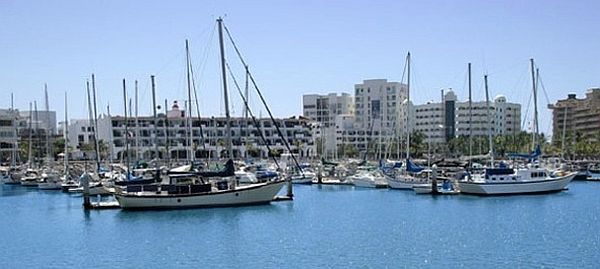Puerto Vallarta, Mexico - When heavily armed marines and government tax agents stormed eight marinas on Mexico's Pacific and Caribbean coasts, local boaters thought they were witnessing a major criminal takedown.
The mostly American and Canadian retirees found out that the target was actually them — couples spending their golden years sailing warm-weather ports in their 40-foot boats.
After inspecting more than 1,600 vessels in late November, the Mexican government's Treasury Department announced it had initiated seizure orders against 338 boats it accused of lacking a $70 permit. The office says it has four months to decide whether to release the boards or sell them at auction.
Many owners say they actually have the permit but were never asked to present it. Others say minor numerical errors in paperwork were used as grounds for seizure.
Some say they were away at the time and have never been officially notified at all, learning of the seizure only from local marina operators.
It is all part of a new effort by the Mexican government to increase revenues in a country with one of the worst tax-collection rates among the world's large economies. The push has drawn howls of protest from Mexicans upset about new sales taxes and levies on home sales. But few of the new measures were as unexpected or toughly enforced as what foreign pleasure boat owners call a heavy-handed crackdown over a minor permit, and they say it threatens a tourism sector Mexico has long sought to promote.
"They brought all these armed marines, and they kind of descended on the marina and everybody's going, 'Wow, there's something really big going down here,'" said Richard Spindler, whose catamaran Profligate was impounded near Puerto Vallarta. "These are just retired people, 50 - 60-year-old retired people, mellow people. It was way over the top."
Many boat owners say they simply weren't around when authorities came by and slapped liens on the boats barring them from leaving Mexico. They say officials have not told them how they could remedy the situation.
The document in question, known as a "Temporary Import Permit," can be obtained from a Mexican government website and proves holders own their boats and promise not to leave them in Mexico or sell them here.
Hundreds of boats did present their papers on time and weren't impounded. Elizabeth Shanahan, who lives on her boat at a marina in the Pacific coast resort of Nuevo Vallarta, said she had no trouble when authorities came through, and that fellow boaters who didn't initially have their papers in order were given 10 days to comply.
"It is the responsibility of the property owner, be it a boat or whatever, to know the laws of the country in which they are traveling and visiting," she said.
The Treasury Department and its tax agency refused to specify the size, value, or nationality of boats that were impounded and did not respond to numerous requests for details or reaction to the boat owners' complaints.
Because authorities put no notices or chains on targeted boats, some foreigners in affected marinas are uncertain if their boats are on the impound list and fear their vessels might be seized if they tried to sail away even if they had paid the $70 tax.
"This is killing nautical tourism in the worse way, as it is the government itself that is taking the yachts," said Enrique Hernandez, a member of Mexico's Association of Marinas.
A spokesman for the United States Embassy in Mexico City, Mark C. Johnson, said in an email that US officials are holding discussions on the issue with the Mexican government. Canada's Department of Foreign Affairs, Trade, and Development said it knows of three Canadians whose boats were seized.
Spindler, who has been sailing to Mexico for 36 years and publishes the sailing magazine "Latitude 38," estimated that about 45 of the 53 boats at the marina where his boat was seized are owned by Americans or Canadians.
"Mexico wants and greatly supports nautical tourism," he said, but warned that the heavy-handed approach could put the sailing sector at risk.
Paradoxically, Mexico may be punishing some of its biggest boosters — visitors who return each year and keep marinas and boatyards in work.
"This is the killer, these people are the greatest ambassadors for Mexico you have ever heard," Spindler said. "It's really given Mexico a black eye."
Original Story


